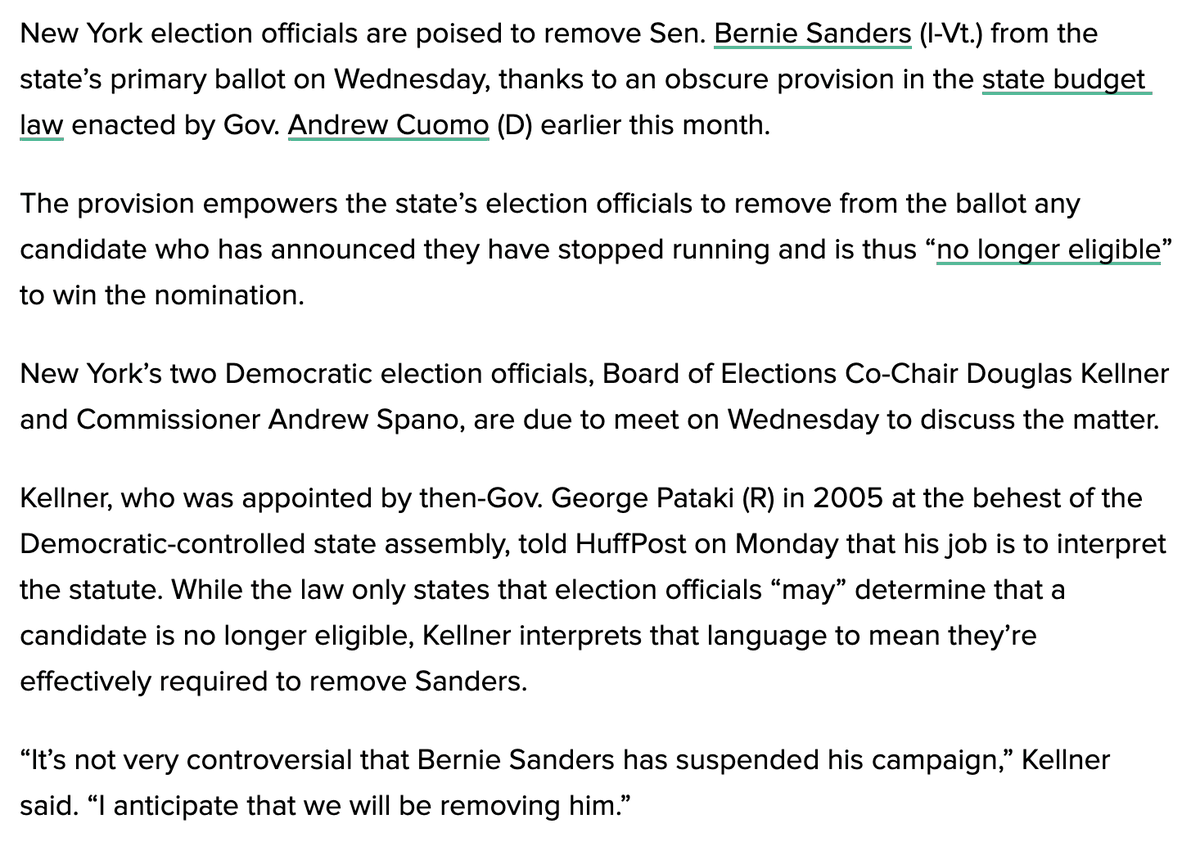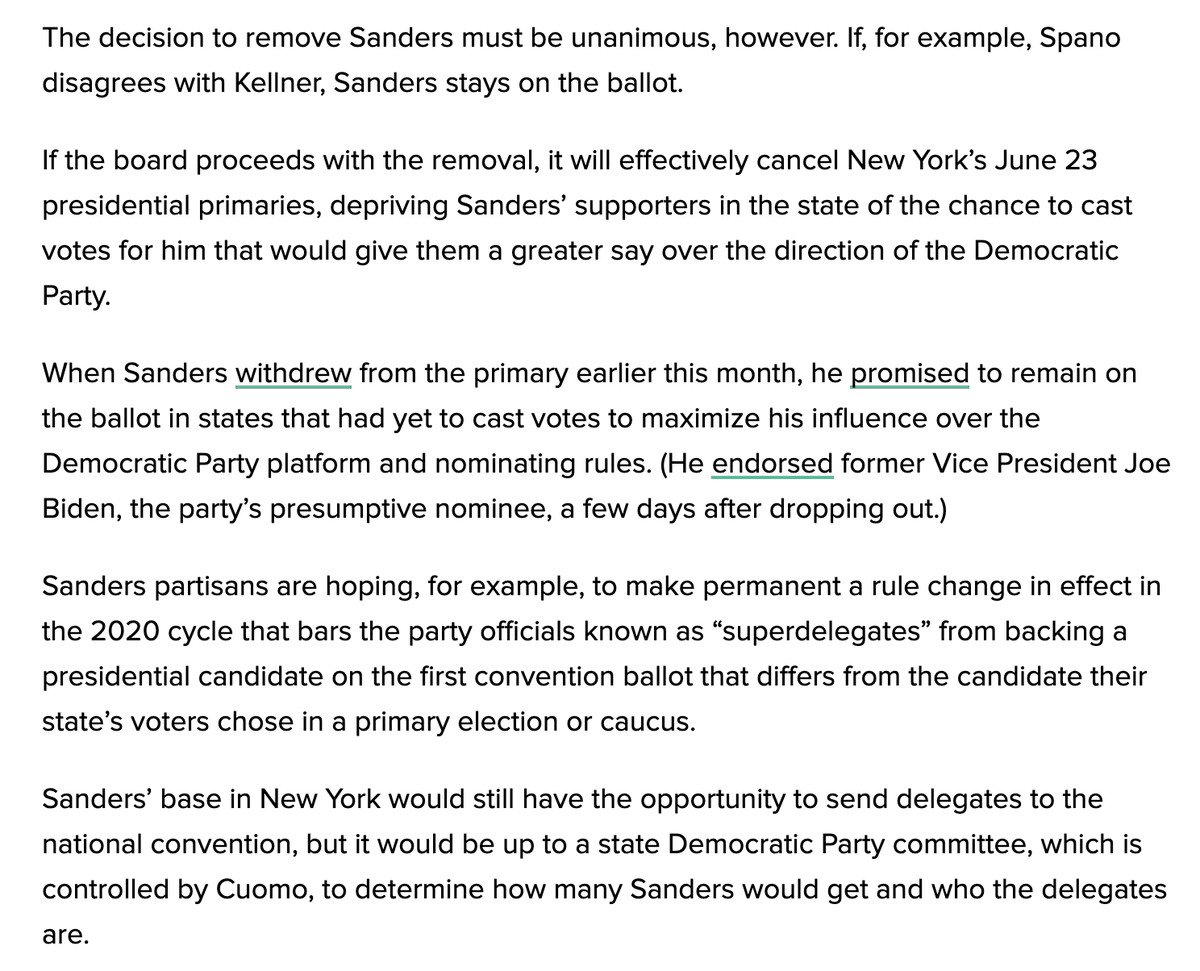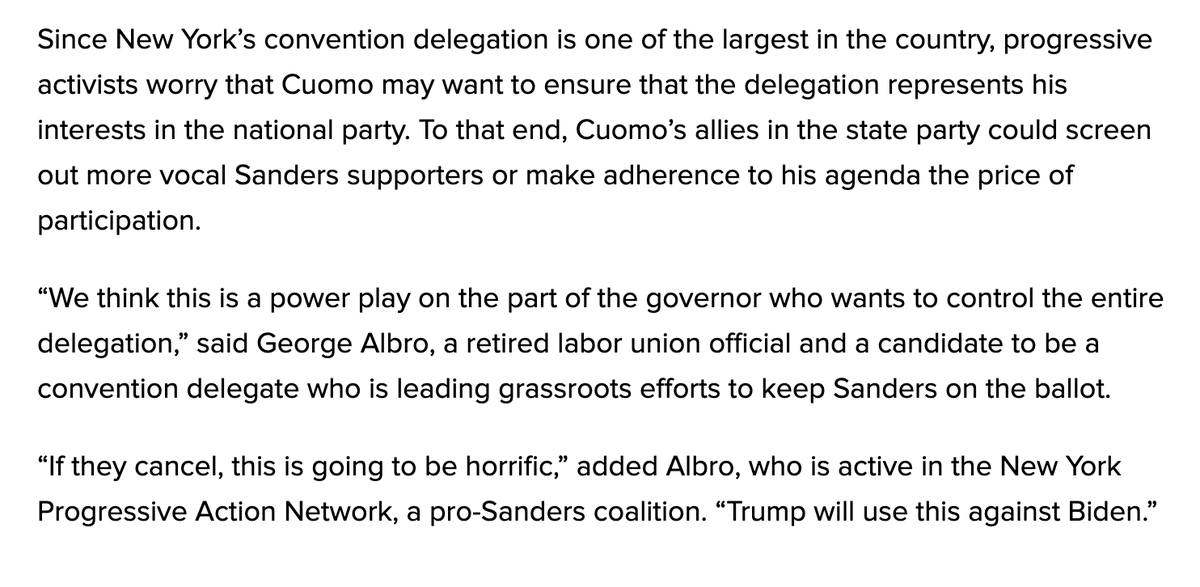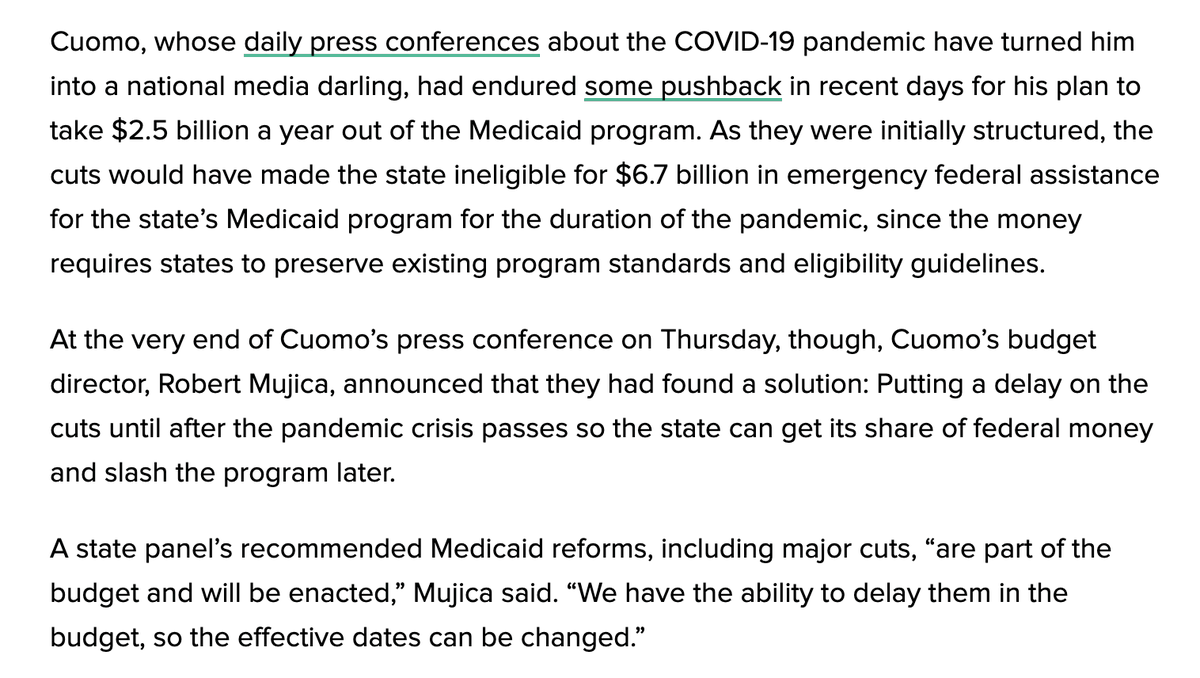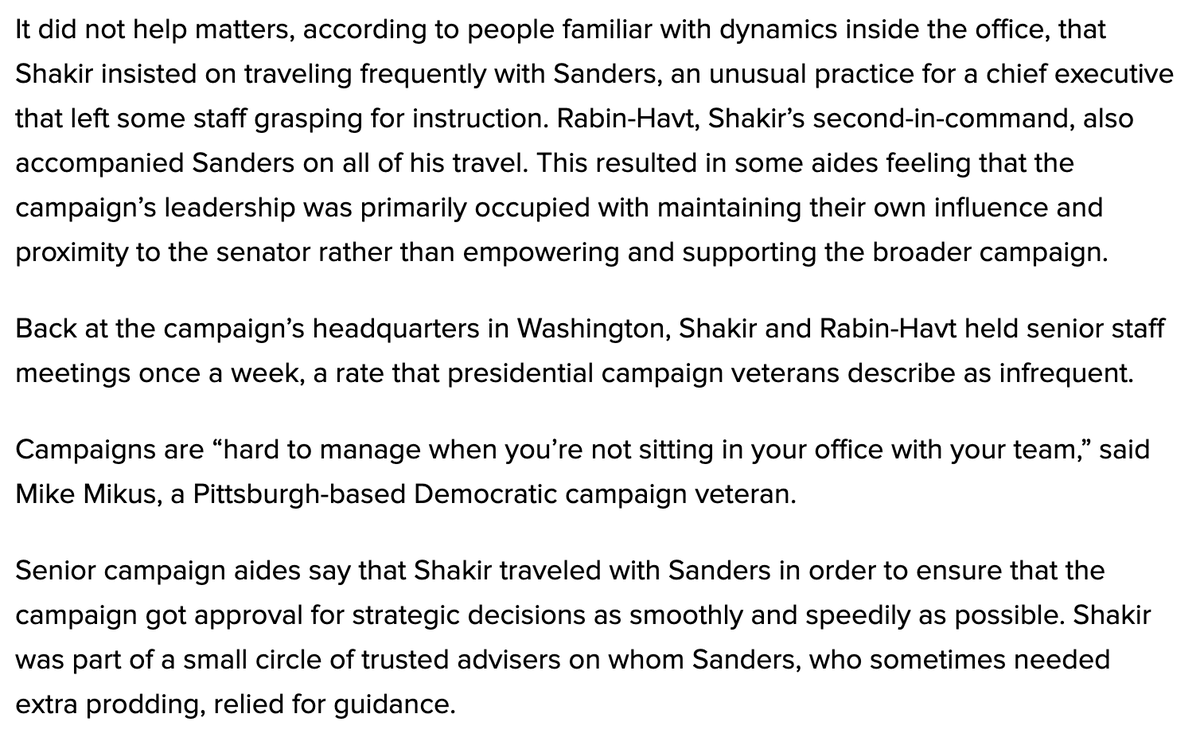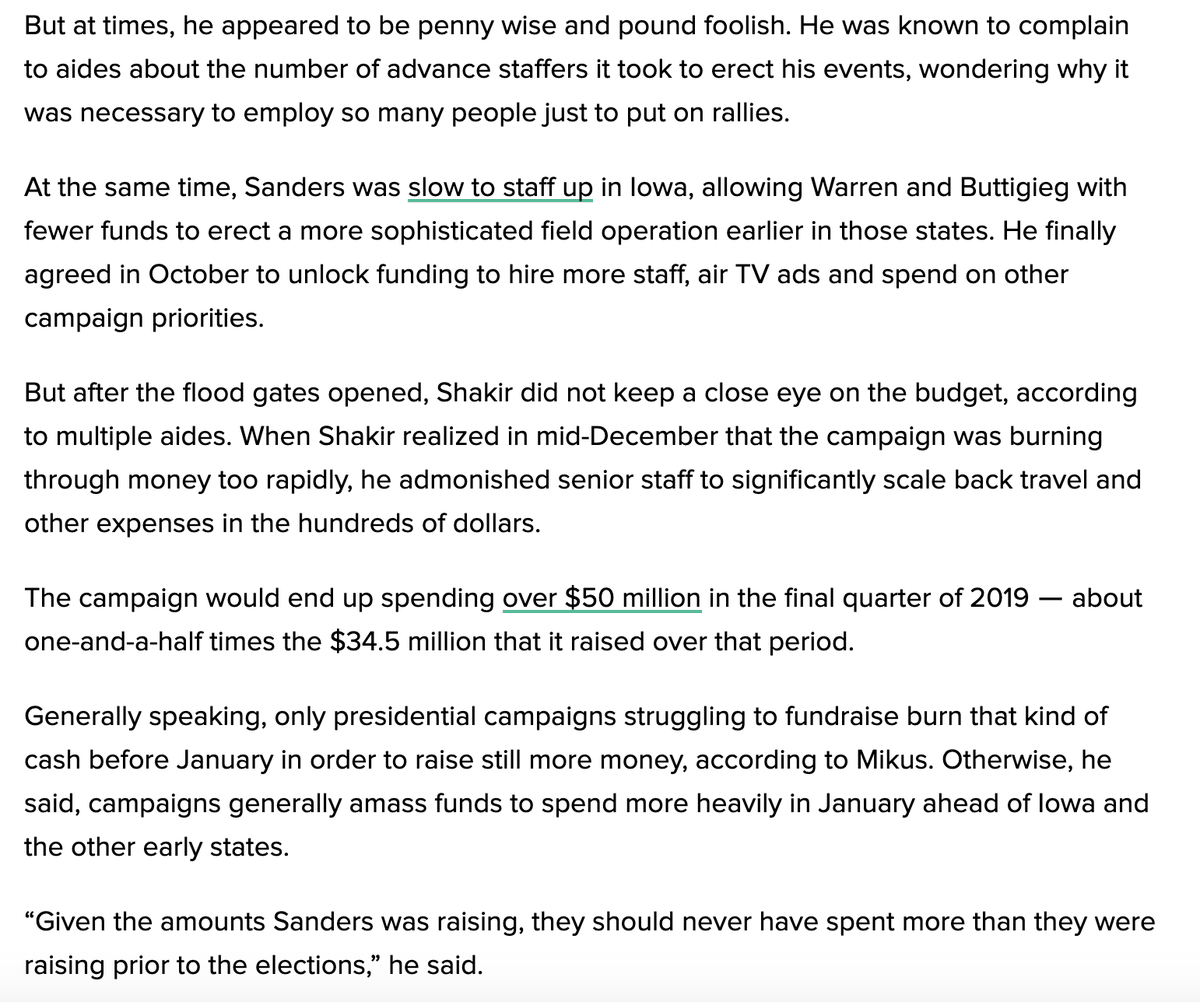
Trump ran on:
1) Reviving manufacturing;
2) Providing universal health care;
3) Protecting Social Security, Medicare and Medicaid;
4) Lowering Rx prices;
5) Investing in infrastructure.
Some people are annoyed that I documented how he failed to deliver: huffpost.com/entry/donald-t…
1) Reviving manufacturing;
2) Providing universal health care;
3) Protecting Social Security, Medicare and Medicaid;
4) Lowering Rx prices;
5) Investing in infrastructure.
Some people are annoyed that I documented how he failed to deliver: huffpost.com/entry/donald-t…
Yes, Trump was never coherent or serious about policy, and yes, racism and xenophobia were a huge part of his pitch.
But he made enough populist rhetorical gestures to confuse swing voters, excite some on the left and new right, and frighten conservatives.
But he made enough populist rhetorical gestures to confuse swing voters, excite some on the left and new right, and frighten conservatives.

Trump's candidacy spawned a small but significant anti-libertarian and nationalistic conservative intellectual movement, embodied by figures like @JuliusKrein, @esaagar and @oren_cass.
.@oren_cass did not want to talk for this story, but Krein and Enjeti are disappointed in Trump.
“As president, there has been a lot more conventional Republican, market fundamentalist policy,” @JuliusKrein.
“Trump became a real Republican at the very worst time,” @esaagar.

“As president, there has been a lot more conventional Republican, market fundamentalist policy,” @JuliusKrein.
“Trump became a real Republican at the very worst time,” @esaagar.


Even some liberals acknowledge that Trump *ran* differently than other Republicans.
From the cutting-room floor: @WSpriggs "He took the populist critique of trade agreements and openly courted union votes in a way that Republicans had not before."
From the cutting-room floor: @WSpriggs "He took the populist critique of trade agreements and openly courted union votes in a way that Republicans had not before."
More cutting-room floor quotes from Steve Knievel of @PCMedsAccess: "There was actually potential that there might have been some room for compromise... He took positions on the campaign trail that were unorthodox to begin with."
Trump broke with several decades' precedent on trade, but his disinterest in going beyond some unilateral measures and into deeper policy meant that manufacturing actually performed worse relative to other sectors, especially in the Great Lakes region that won him the presidency. 

Hard to dismiss the research panning Trump's manufacturing record, since much of it comes from @EconomicPolicy, which Trump himself cited when touting his manufacturing plans as a candidate.
See this March 2016 op-ed: usatoday.com/story/opinion/…

See this March 2016 op-ed: usatoday.com/story/opinion/…


Beyond trade, a rundown of populist promises not delivered:
Drug prices? Some half-hearted, last-minute exec orders.
Universal health care? No, just ACA repeal.
Protecting social insurance? Budgets cutting Social Security.
Infrastructure? The "infrastructure week" joke.


Drug prices? Some half-hearted, last-minute exec orders.
Universal health care? No, just ACA repeal.
Protecting social insurance? Budgets cutting Social Security.
Infrastructure? The "infrastructure week" joke.



Instead, Trump's biggest legislative priority -- and victory -- was a lopsided, super-rich and corporation-friendly tax cut bill that got spent on stock buybacks. 

The one thing Trump had going for him before COVID was a strong economy, albeit one he largely inherited.
But he hasn't prioritized a COVID relief bill that would have maintained that prosperity.
Look how U.S. unemployment skyrocketed relative to EU, Japan (US is purple line).
But he hasn't prioritized a COVID relief bill that would have maintained that prosperity.
Look how U.S. unemployment skyrocketed relative to EU, Japan (US is purple line).

Why has Trump governed so differently than he at least suggested he would when he ran in 2016?
The biggest reason is obviously that he was never interested in policy ...
The biggest reason is obviously that he was never interested in policy ...
... @esaagar believes this disinterest meant delegating to more traditional, trickledown figures like Ryan and McConnell without realizing implications.
Michael Lind told me it reflected Trump's specific disinterest in domestic policy, which he was more comfortable outsourcing.
Michael Lind told me it reflected Trump's specific disinterest in domestic policy, which he was more comfortable outsourcing.

One silver lining for the left?
@RobScott_epi and @WSpriggs told me Trump's success, however short-lived, has made Democrats less likely to embrace pro-corporate trade deals and -- they hope -- generally more motivated to prove their commitment to improving people's lives.
@RobScott_epi and @WSpriggs told me Trump's success, however short-lived, has made Democrats less likely to embrace pro-corporate trade deals and -- they hope -- generally more motivated to prove their commitment to improving people's lives.

The premise of my article, that Trump ran as a "populist" and failed to deliver, is the same framing used by Bernie Sanders in his attacks against Trump.
Here's my coverage of one such Sanders speech from May 2017: huffpost.com/entry/bernie-s…
Here's my coverage of one such Sanders speech from May 2017: huffpost.com/entry/bernie-s…

Now some Dems' fears that Trump's publicity stunt around the Carrier factory reflected a deeper political genius have faded.
“I always knew he was going to be a fraud. Four years later, that’s been proven," @IreneHLin.
“I always knew he was going to be a fraud. Four years later, that’s been proven," @IreneHLin.

On a somewhat related note, @ShaneGoldmacher has a terrific report from historically Democratic northeast Pa., a hub of Obama-Trump voters: nytimes.com/2020/10/11/us/…
In a companion episode of the Daily, Shane reveals that John Yudichak, a state sen. who left the Dems because of Trump and whom Shane features prominently in the article, is going to vote for Biden this year: nytimes.com/2020/10/09/pod…
Trump's performance might have to do with it?
Trump's performance might have to do with it?
As anyone who has visited these communities knows, many, many post-industrial cities towns also have large communities of working-class Black residents ...
https://twitter.com/danielmarans/status/1059886055170682880
... Dayton, Ohio, Mayor Nan Whaley, whose quotes didn't make it into the piece, noted that Black residents of post-industrial communities are also often "swing" voters deciding between a Democrat and staying home.
She cited this piece by Ibram Kendi. theatlantic.com/ideas/archive/…
She cited this piece by Ibram Kendi. theatlantic.com/ideas/archive/…
• • •
Missing some Tweet in this thread? You can try to
force a refresh









